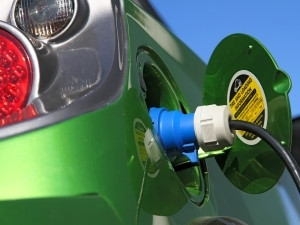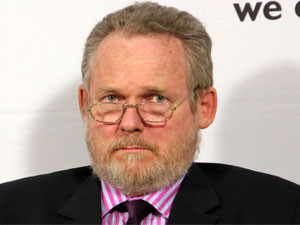
The Department of Trade and Industry (DTI) is reviewing public input in response to plans it announced in May to incentivise local car manufacturers to produce electric cars, under a scheme called the Electronic Vehicle Industry Roadmap.
DTI spokesperson Sidwell Medupe says he is unable to elaborate on the details of the public comment received, or specify what concerns were raised. He notes the department hopes to present the revised version of the roadmap in time for the Johannesburg Motor Show, which takes places from 18 October.
Government introduced incentives in the mid-1990s for car-makers that invest in the local industry, and the incentive for electric car manufacturing is set to be an add-on to the existing programme.
In 1995, government introduced the Motor Industry Development Programme (MIDP) - an extensive support scheme to develop a sustainable and globally competitive automotive industry. The current MIDP will be replaced this year by the Automotive Production Development Programme, expected to remain in place until 2020.
Automotive companies can already get 20% back on their investment in car manufacturing, which includes things such as the manufacturing plant, machinery, etc. This can be increased to 30% if a manufacturer raises the bar on additional aspects such as job creation, and an extra 5% will be added if a company expands into electric car production.
Second chance
SA seems determined to give electric cars another try, even after the June 2012 closure of Optimal Energy, the Cape-based company behind the Joule, SA's first electric car.
DTI minister Rob Davies says SA is a vehicle manufacturing country that cannot be left behind on greening technology. "Fuel cell cars, hybrid cars and electric cars are the way of the future." He says while production of electric cars is a costly endeavour that requires serious investment, government feels it is important to encourage manufacturers to take part in greening initiatives.
In May, Eskom received 10 Nissan Leaf all-electric cars as part of a research project to study the charging requirements and characteristics of electric vehicles, and prepare for their entry into the South African market.
Through its research, Eskom will seek to understand what electricity infrastructure is required and how such infrastructure is likely to be used before electric cars become widely adopted in SA.
The power utility has already installed charging stations at its head office, Megawatt Park, in Sunninghill, and at its research facility in Rosherville, Germiston. Several portable charging stations will be moved with the vehicles to enable research participants to charge vehicles at home.
Slowly but surely
While current global uptake of electric vehicles is still slow, a report by the International Energy Agency released in April shows global electric car sales more than doubled from 2011 (45 000) to 2012 (113 000).

"Electric vehicle (EV) sales in Q1-Q3 2012 only reached 1% of total vehicle sales in Norway and Japan, but as EVs begin to penetrate the automotive market, the shares are likely to increase. In fact, in the last quarter of 2012, EV sales reached over 1% of total vehicle sales in both the Netherlands and the US, furthering gains in market share," states the report.
"Analysis of Electric Vehicle Initiative (EVI) data shows that to reach the EVI goal of 5.9 million in annual sales of EVs in 2020, the 2011 EV market (approximately 45 000) would need to grow by 72% compounded each year until 2020."
Meanwhile, a Deloitte global automotive research project completed in 2011 shows South African motorists are likely to adopt a "wait and see attitude" and evaluate industry and government initiatives before making the decision to switch to electric cars.
"The survey also revealed that more motorists in emerging markets would be willing to consider a switch to electric power than in first world countries. This would suggest that SA, being classed as a developing nation, could have a high proportion of first movers. Locally, however, variables such as education levels, unemployment and lack of coordinated public transport will have to be considered as part of the equation, before a view on early technology adoption could be made," says the report.
Deloitte notes it is ultimately the consumer who will decide whether the local electric car market will become a success story for manufacturers and government.
Share